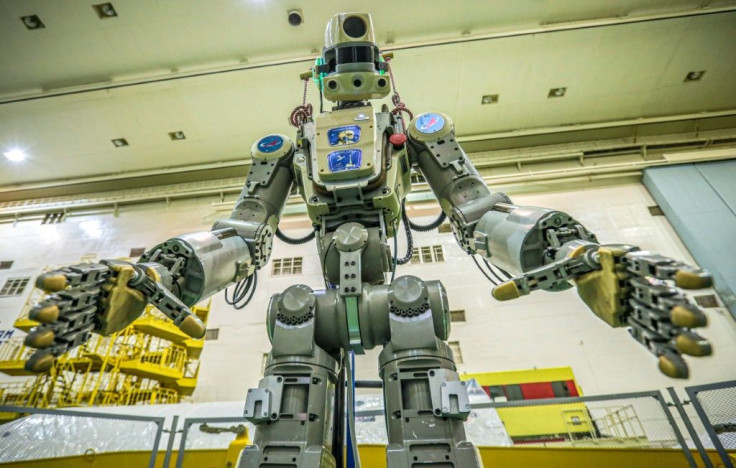Russia’s Humanoid Robot Returns From The International Space Station

NASA has confirmed that the Soyuz MS-14 spacecraft carrying a humanoid robot from Russia has safely returned to Earth following a trip from the International Space Station (ISS).
The robot, dubbed as Skybot F-850 is the space version of the FEDOR models developed in Russia. It arrived at the ISS on Aug. 27 through the Soyuz MS-14 spacecraft launched by Russia’s space agency, Roscosmos.
The spacecraft’s launch, as well as its return to Earth, marked the Soyuz’s first unmanned flight. Previously, the Soyuz spacecraft was used to transport human crew to the ISS.
During its time aboard the space station, Skybot F-850 participated in various tests conducted by Russian cosmonauts. Some of the tests involved matching connector plugs while being weightless and simulating maintenance procedures on exterior cables during a spacewalk.
After over a week in space, Skybot F-850 returned to Earth through the Soyuz MS-14 spacecraft. In preparation for the uncrewed flight, Roscosmos noted that it equipped the spacecraft with various equipment and systems to ensure a safe departure from the ISS.
“The Soyuz MS-14 features an improved guidance, navigation and descent control system,” the agency said in a statement. “The descent vehicle features a digital angle rate integrator unit-based control system with the fiber-optic gyroscopes instead of an analogous descent control system based on a free-attitude gyroscope.”
NASA confirmed that the Soyuz MS-14 was able to successfully undock from the ISS and descend safely back to Earth. According to the space agency, the spacecraft landed in a region in Kazakhstan and was immediately recovered by the waiting staff members of Roscosmos.
“Landing occurred about 87 miles southeast of the town of Dzhezkazgan,” NASA stated. “Roscosmos personnel are on-site and have recovered the vehicle for post-flight analysis.”
Due to the success of the mission, Roscosmos will most likely use the same systems in other Soyuz models for future space flights. Likewise, Skybot F-850’s successful stay at the ISS could mean that Russia will proceed with creating more space-capable robots. If all goes well, these robots could eventually replace human astronauts when it comes to performing dangerous tasks such as spacewalks.
© Copyright IBTimes 2025. All rights reserved.




















